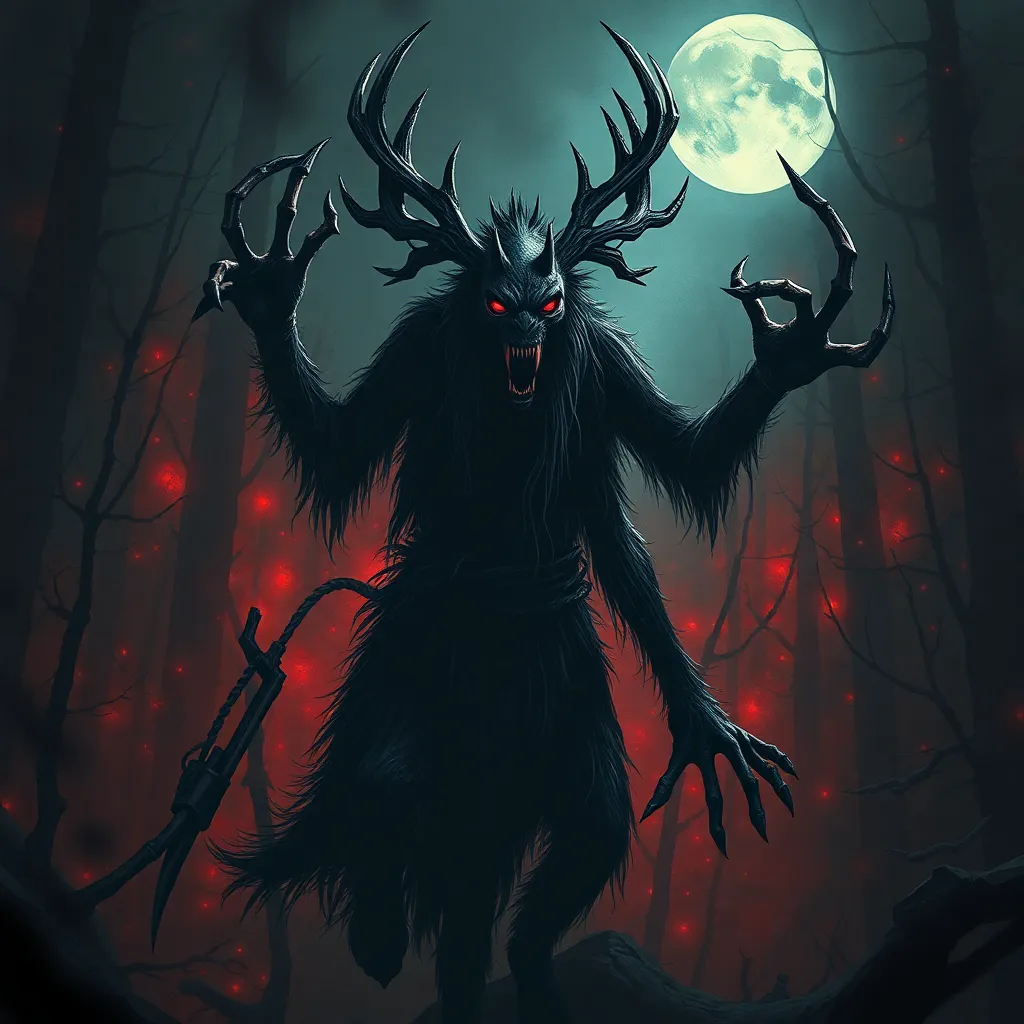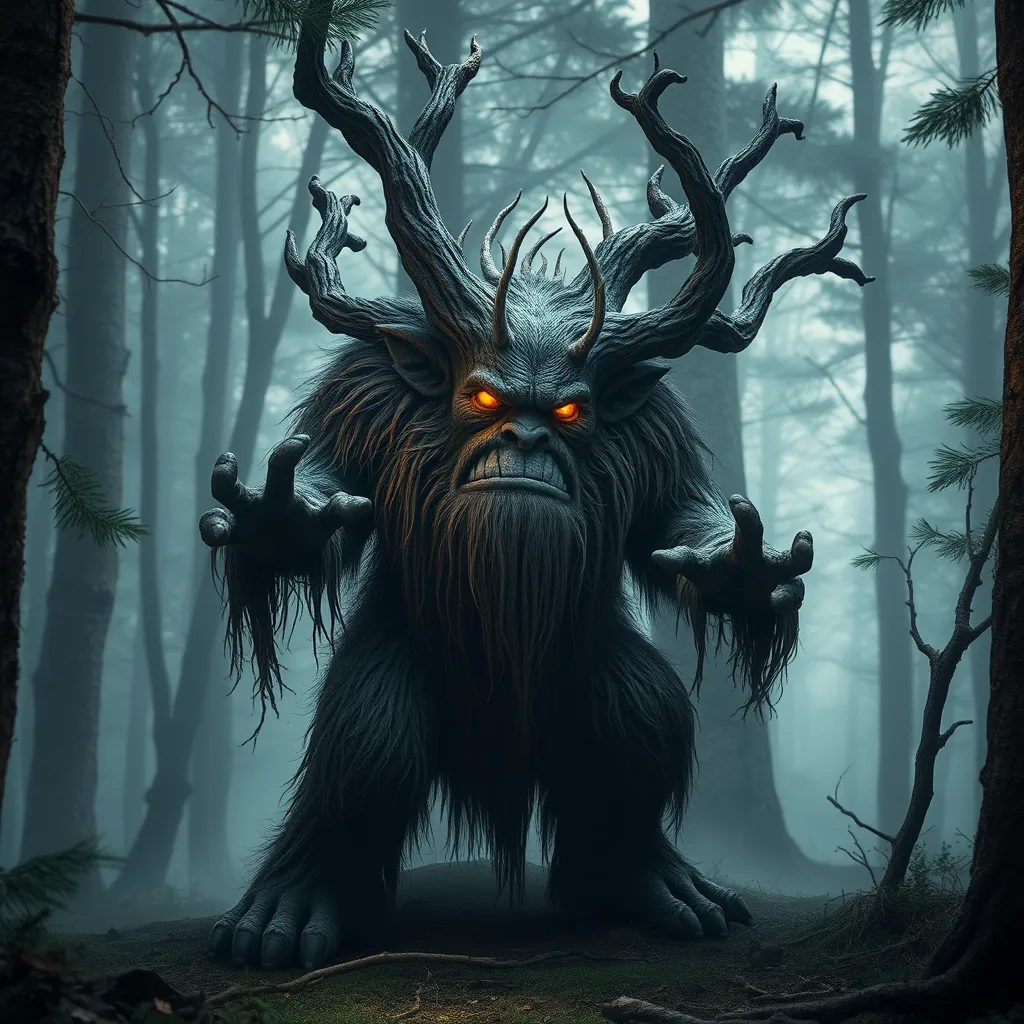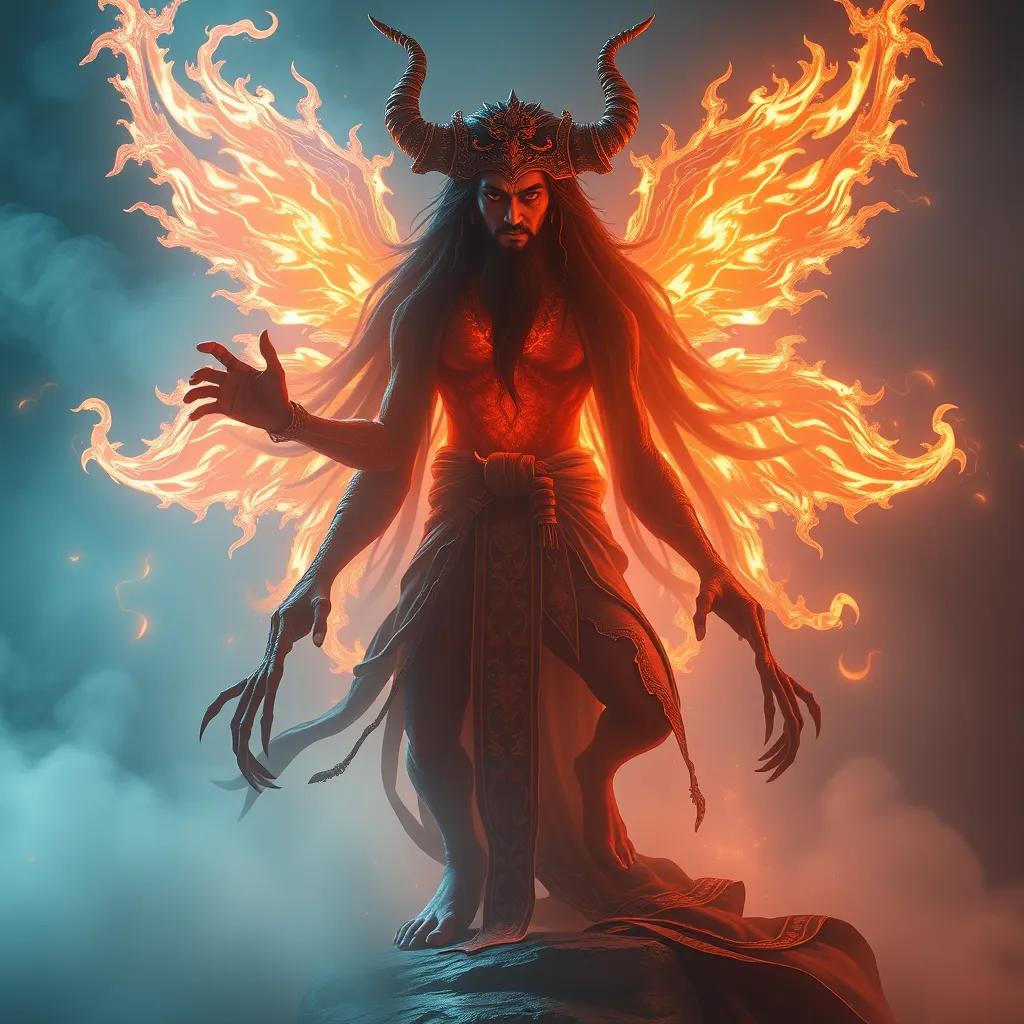The Wendigo: The Cannibalistic Spirit of the Algonquin People
I. Introduction to the Wendigo
The Wendigo is a legendary creature rooted deeply in the folklore of the Algonquin people, a group of Native American tribes located in the northern regions of North America. This mythological being is often depicted as a malevolent spirit associated with winter, starvation, and insatiable greed.
The Wendigo is significant in Algonquin culture as it embodies the consequences of selfishness and the taboos surrounding cannibalism. The myth serves as a cautionary tale, warning individuals of the dangers of unchecked desires and moral decay.
The purpose of this article is to explore the various facets of the Wendigo legend, including its historical context, characteristics, cultural significance, and its evolution in modern interpretations.
II. Historical Context of the Wendigo Legend
The Algonquin people have a rich history and a belief system that intertwines with the natural world and spiritual entities. The Wendigo legend reflects their understanding of the balance between humanity and nature, emphasizing the importance of community and the dangers of isolation.
Oral tradition plays a crucial role in preserving the Wendigo myth, with stories passed down through generations. These narratives serve not only as entertainment but also as moral lessons, shaping the values and beliefs of the community.
Historical accounts of the Wendigo vary among tribes, with some emphasizing its physical grotesqueness while others focus on its psychological implications. These variations highlight the adaptability of the myth within different cultural contexts.
III. Characteristics of the Wendigo
The Wendigo is often described as a gaunt, emaciated figure, with skin stretched tightly over its bones and a heart of ice. Its appearance evokes images of starvation and decay, symbolizing the consequences of greed.
- Physical description: Tall, thin, and often depicted with antlers or a monstrous face.
- Symbolism: Represents the dangers of excess and the loss of humanity in pursuit of self-interest.
Psychologically, the Wendigo is portrayed as embodying extreme hunger and a relentless desire for human flesh. This insatiable appetite reflects not only physical hunger but also a metaphorical hunger for power and resources.
The Wendigo serves as a powerful metaphor for greed and excess, illustrating how the desire for more can lead to moral corruption and destruction.
IV. The Wendigo in Algonquin Folklore
In Algonquin folklore, stories of the Wendigo often serve as cautionary tales. These narratives typically involve individuals who succumb to the Wendigo’s influence, leading to their downfall. Themes of isolation, desperation, and the loss of humanity are prevalent.
- Common stories: Tales of hunters who, faced with starvation, turn to cannibalism and become Wendigos themselves.
- Cautionary role: The Wendigo warns against the dangers of abandoning one’s morals and the importance of community.
When compared to other mythological creatures, the Wendigo shares similarities with figures from various cultures that embody themes of excess and moral decay. However, its unique ties to the Algonquin experience make it a distinct and powerful legend.
V. Cultural Significance and Modern Interpretations
The Wendigo has transcended its original cultural boundaries and has been integrated into contemporary media, including literature, film, and art. Modern interpretations often emphasize horror and the psychological aspects of the Wendigo myth.
- Contemporary media: Films such as “Antlers” and books like “Wendigo” have brought renewed interest to the legend.
- Impact on identity: The Wendigo myth continues to be a vital part of Algonquin identity, linking modern Indigenous peoples to their ancestral roots.
Psychologically, modern interpretations of the Wendigo concept explore themes of addiction, consumption, and the human condition, reflecting broader societal issues.
VI. The Wendigo and Cannibalism
Among the Algonquin tribes, cannibalism was historically viewed through a complex lens, often associated with survival and taboo. The Wendigo legend embodies these tensions, representing both the extreme measures taken in desperation and the moral repugnance surrounding such acts.
- Historical beliefs: Cannibalism was sometimes practiced in dire circumstances but was heavily stigmatized.
- Representation of taboo: The Wendigo serves as a reminder of the consequences of violating social norms and ethical boundaries.
Psychologically, the association of the Wendigo with cannibalism raises questions about humanity’s darker impulses and the moral dilemmas faced in extreme situations.
VII. The Wendigo in Popular Culture
In recent years, the Wendigo has made significant appearances in popular culture, particularly in horror films, literature, and television shows. These portrayals often focus on the creature’s terrifying aspects, while sometimes glossing over its cultural origins.
- Notable examples: Movies like “Ravenous” and series such as “Supernatural” feature the Wendigo prominently.
- Modern narratives: The Wendigo is often depicted as a monstrous entity, emphasizing horror elements rather than cultural significance.
The influence of the Wendigo myth on the horror and fantasy genres illustrates its adaptability and the universal themes of fear, isolation, and moral decay it embodies.
VIII. Conclusion
In summary, the Wendigo holds immense importance in Algonquin culture, serving as a powerful symbol of greed, excess, and the consequences of moral failure. Its stories provide valuable lessons about the human condition and the significance of community.
The enduring power of myths and folklore like that of the Wendigo reflects their ability to resonate across cultures and time, addressing universal themes that remain relevant today.
Ultimately, the Wendigo serves as a reminder of the complexities of human nature and the dark potential that lies within, prompting reflection on our own societal values and the dangers of losing our humanity in the face of adversity.



